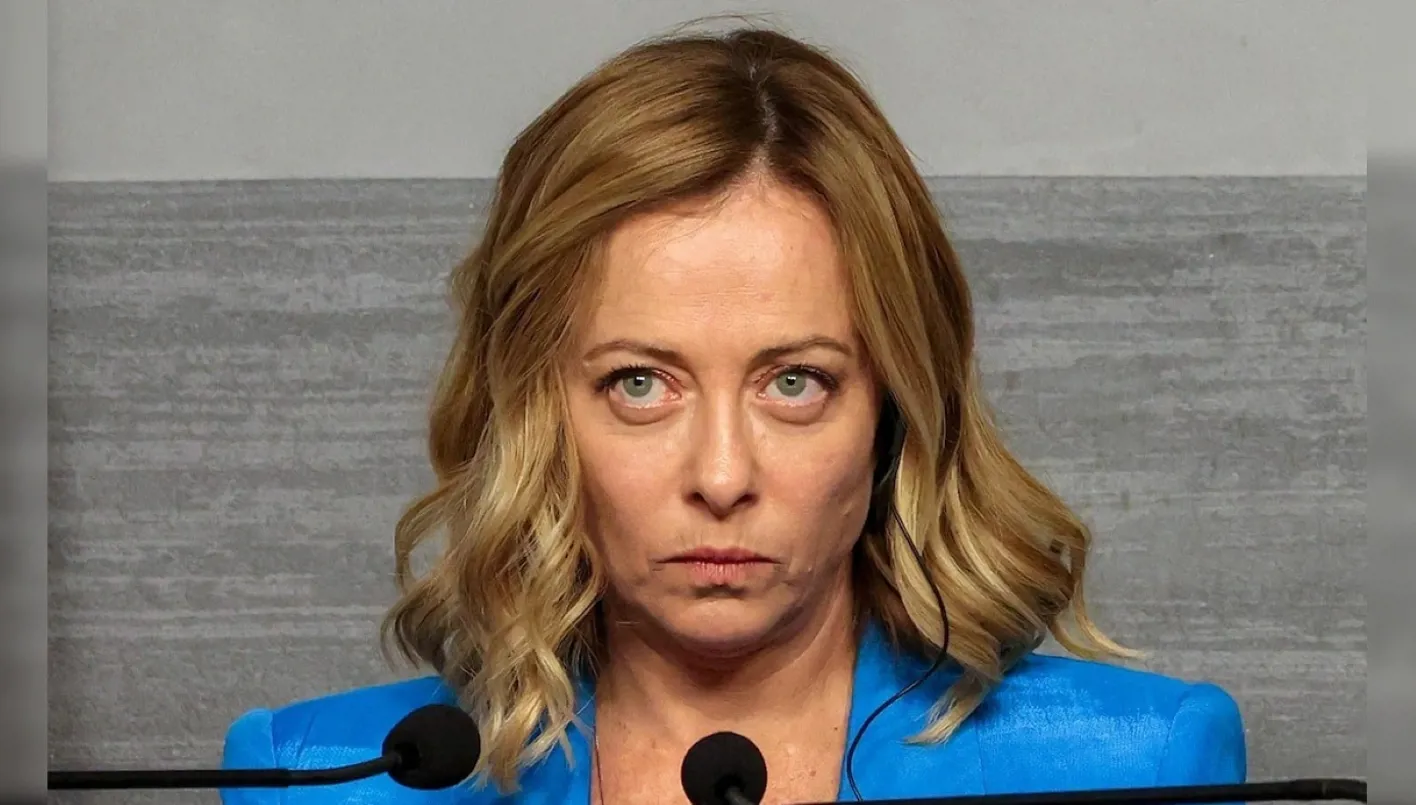Italian Prime Minister Giorgia Meloni (AFP)
Italian Prime Minister Giorgia Meloni was not the only one to fall victim to leaked sexual photos on websites; dozens of Tunisian women also became victims of similar leaks on Telegram groups, sparking a broad debate about the phenomenon of digital violence, which disproportionately affects women.
Dozens of Victims
Like Meloni, whose intimate photos were leaked on a well-known site using deepfake technology, dozens of Tunisian women of various ages were victims of leaks on chat groups on the Telegram platform.
These leaks came in response to the creation of a Facebook group, allegedly run by girls, dedicated to enabling members to share emotional experiences they had lived through.
On Telegram groups, very private photos of Tunisian women with uncovered faces were posted, often including their names and addresses. These were shared by people using pseudonyms or anonymous identities, causing widespread anger among feminist and popular circles demanding authorities to act to shut down these groups.
Reviewing the posted photos and videos shows that some were copied from the victims’ social media accounts with clear modifications using artificial intelligence techniques, while others were taken without their knowledge during intimate moments or sent to previous acquaintances who then reposted them without permission, as an act of defamation and revenge.
The “Epidemic” of Cyber Violence
This incident brought back to the forefront the discussion about cyber violence against women, which takes many forms: extortion, revenge, deepfake, or defamation, according to feminist activist Rim Al-Haddadi, who told “An-Nahar”: “Displaying women’s photos without their consent and defaming them is a form of digital violence.”
A study conducted by the Center for Research, Studies, Documentation and Information on Women (CREDIF) aimed at defining digital violence and raising awareness among female victims to break the silence loop, using Facebook as a model, found that 89% of Tunisian women have experienced digital violence at least once on social media.
The study also showed that 95% of these women do not go to court, either out of fear of threats and social stigma or ignorance of the concept of digital violence and the seriousness of the issue or the lack of deterrent laws.
In a previous statement to “An-Nahar,” Raja Dahmani, president of the Democratic Women Association, said the digital space is no longer safe for women, likening digital violence to “a silent epidemic that threatens women’s dignity.”
She also confirmed that more than 45% of women have been exposed to some form of digital violence, whether through threats, defamation, hacking, or extortion.
Tunisian Law Criminalizes It
Legally, Tunisia has addressed such phenomena and classified them as crimes under the law related to the protection of personal data and Article 86 of the Telecommunications Code concerning publishing content that harms others on social media.
These acts also fall under Decree 54, which increased criminal penalties for those who deliberately publish content to defame, slander, damage reputation, cause material or moral harm, incite assault on others, or promote hate speech.
According to Tunisian legal texts, penalties for such crimes can reach up to 5 years in prison, in addition to fines, even if the photos were published within closed groups.
However, despite the existence of legal provisions allowing victims to track those who harm them on social media, fear of society remains the biggest barrier preventing most from seeking justice, according to Al-Haddadi, who believes this “contributes to impunity, which may lead to the exacerbation of these phenomena.”













Recommended for you
Talib Al-Rifai Chronicles Kuwaiti Art Heritage in "Doukhi.. Tasaseem Al-Saba"
Exhibition City Completes About 80% of Preparations for the Damascus International Fair Launch
Unified Admission Applications Start Tuesday with 640 Students to be Accepted in Medicine
Egypt Post: We Have Over 10 Million Customers in Savings Accounts and Offer Daily, Monthly, and Annual Returns
His Highness Sheikh Isa bin Salman bin Hamad Al Khalifa Receives the United States Ambassador to the Kingdom of Bahrain
Al-Jaghbeer: The Industrial Sector Leads Economic Growth